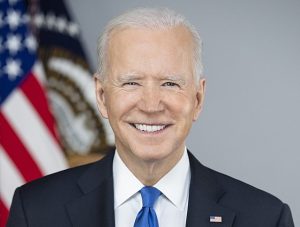A bill that targets the risk of improper influence when government contractors work for both private sector clients and the federal agencies that regulate them was recently passed by Congress, and on December 28 President Joe Biden signed it into law.
The legislation, named “Preventing Organizational Conflicts of Interest in Federal Acquisition Act,” was approved by the Senate in August, and orders multiple changes to federal contracting rules. The new regulations include requirements for contractors to disclose potential conflicts of interest and clearer definitions of when a contractor’s work for outside clients may create such a conflict.
The bipartisan group of senators who sponsored the bill cited reports of McKinsey & Company’s work for the Food and Drug Administration (FDA), which generated tens of millions of dollars in revenue for the firm while it simultaneously provided advisory services to some of the country’s largest pharmaceutical companies — a fact the firm failed to disclose to the FDA.
A House Committee on Oversight and Reform investigation found that at least 22 McKinsey senior consultants, including senior partners, worked for both the FDA and opioid makers on overlapping projects, with consultants seeking to leverage their FDA work to solicit pharmaceutical industry business.
While McKinsey has denied that its work for the FDA and pharmaceutical companies posed a conflict of interest, and insisted that it was under no obligation to disclose its work for drug companies to its government clients that regulated them, the firm has acknowledged in its response to the House report that “this work, while lawful, fell short of the high standards we set for ourselves.”
The company has further stated that it will not take on any further opioid-related projects, and released a statement that it “did not adequately acknowledge the epidemic unfolding in our communities or the terrible impact of opioid misuse and addiction on millions of families across the country.”
McKinsey’s involvement with the pharmaceutical industry during the opioid crisis runs deep, with a ProPublica report revealing that the firm helped Purdue Pharma “turbocharge” its sales of OxyContin. The firm settled legal claims brought by the governments of 47 states, the District of Columbia, and five U.S. territories to the tune of $573 million dollars, with additional litigation still pending.
The new law will help ensure that these conflicts of interest can no longer be hidden by consultancies, assisting federal agencies in their search for advisory services and hopefully preventing firms from simultaneously advising both government bodies and the industries they regulate.

























